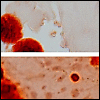Havard’s School of Public Health and Medical School sponsoring their course in clinical trials for FREE.
HSPH-HMS214X Fundamentals of Clinical Trials is just one of the courses offered at www.edx.org.
Ever wonder what it would be like to take a course offered at an Ivy League University? Wonder no more! Harvard is part of a consortium of the most prestigious Universities in the world that is offering MOOC‘s (Massive Open Online Courses). There are no costs involved in taking a MOOC and you get all the same information that you would in an on ground course. The only differences are that you don’t get the instructor (or even TA’s) grading your papers nor will you get college credit on a transcript from Harvard. They are however the same information used in the universities’ on ground for-credit courses that can cost thousands of dollars.
MOOC’s typically use open source materials (available at no charge for personal use) and a type of self grading system based off of discussion forums in the course (It is totally up to the professor how that is handled, so it will vary depending on the course and instructor). They are a combination of one answer to cutting high educational and making it available to everyone.
The course begins October 14, 2013, runs a total of 13 weeks and depending on your background will take between 4-6 hours of your time each week. A background in biostatistics and epidemiology equivalent to the content of PH207X Health in Numbers: Quantitative Methods in Clinical & Public Health Research.
From the course site;
“This course will provide an introduction to the scientific, statistical, and ethical aspects of clinical trials research. Topics include the design, implementation, and analysis of trials, including first-in-human studies (dose-finding, safety, proof of concept, and Phase I), Phase II, Phase III, and Phase IV studies. All aspects of the development of a study protocol will be addressed, including criteria for the selection of participants, treatments, and endpoints, randomization procedures, sample size determination, data analysis, and study interpretation. The ethical issues that arise at each phase of therapy development will be explored.”


